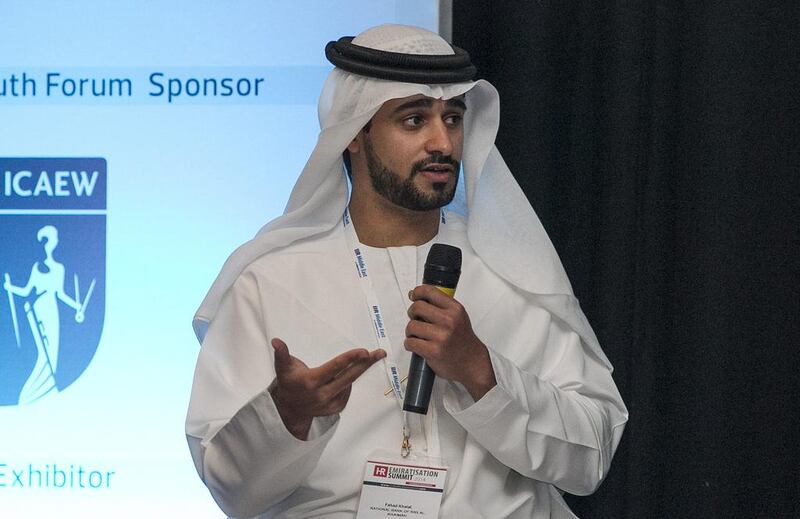ABU DHABI // Employers have been urged to engage more with Emirati staff to retain them in the workplace, and hold to account those managers who fail to do so.
Breaking down stereotypes, flexible working hours and giving Emiratis more responsibility will also encourage more UAE nationals to join and stay in the private sector, experts said at an Emiratisation Summit in the capital.
Zack Abdi, a Canadian expatriate and managing director of the human resources consultancy Provectus Middle East, said job rotation would retain Emirati talent.
“If you just give me the same job to do day in and day out then I am going to think, ‘What I am doing?’. Where is the career path?’ ” he said.
“Job exposure and job rotation allow companies to see the talent. Otherwise how will you know the talent? The only way to know the talent is if you give me an opportunity to showcase my talent.”
Those who are challenged and trained in the job they want to be in will stay, he said.
Emma Walker, group adviser for Emiratisation talent management and head of the graduate Intilaq Programme at Al Futtaim Group, said: “You have to place people’s strengths.
“Some people go into our company and try three different jobs, but that is OK. They have gained more exposure and seen more of the company and realise their strengths really do lie in the first job they were doing.”
Fahad Khalaf, nationalisation manager at the National Bank of Ras Al Khaimah, said UAE nationals needed to know their role in the workplace.
“The UAE national should know what he or she is adding to the business,” he said. “What is the role they are doing and how will it have a positive effect in the overall picture.”
For Hamda Al Shamali, senior manager of Emiritisation and local talent in Human Resources at HSBC Bank Middle East, communication is vital.
“You have to talk to them,” she said. “You have to make time to sit with them and discuss their issues, how their training progression is going on, what they need the HR team to do. “Often they feel there is no one there to listen to us and by the time they decide to resign it is too late to try and retain them. He has already made his mind up.”
David Jones, managing director of the Talent Enterprise, said "old fashioned stereotypes" about Emiratis and their work ethic had to change, and the younger generation given a voice to express their wants in the workplace.
“I think that is really up to us in the older generation – whether expats or UAE nationals – to almost get out of the way of the new generation,” he said.
“We need to make sure we are speaking the same language as our current workforce and the workforce of the future. The median age of an Emirati is 23.
“We have to ask ourselves then – in our HR polices, in our emails, on our corporate website – is it just a bunch of old people talking about young people or are we actually talking in the right language that is going to engage and motivate and attract and retain the younger generation?
“I think that is a challenge and a question we really need to answer ourselves.”
Matching Emiratis' skill sets with the right job is essential, he said.
“It is not just about hiring more Emiratis but it is about hiring the right Emiratis and that is good for the individual and the organisation.”
Hans Horlings, managing partner at Innesskirk training and consulting services, said managers should be held responsible if there was a low retention rate of UAE nationals.
“If there is one thing we can do as an employer to make a difference it is to make managers accountable and responsible for the engagement of their employees,” he said.
Sangeeth Ibrahim, of the learning and development department in Human Resources at Sharjah Islamic Bank, said: “We can hold managers accountable for engagement and retention.”
By keeping managers accountable every resignation would resonate with senior staff, along with how to work to prevent it from happening again, he said.
jbell@thenational.ae






